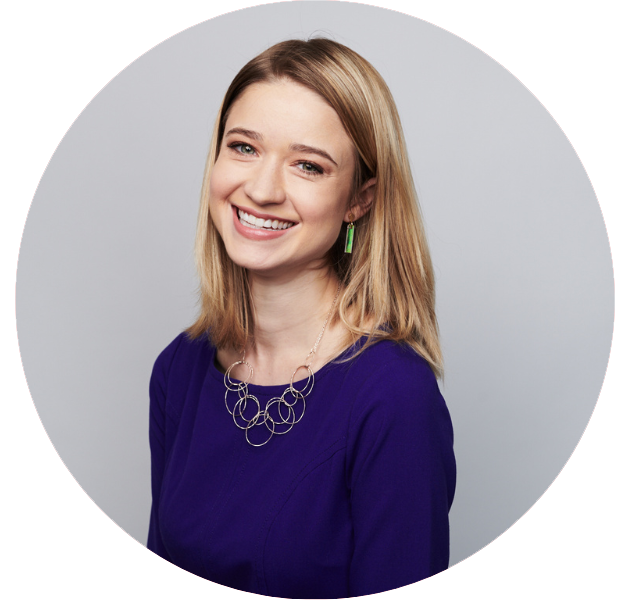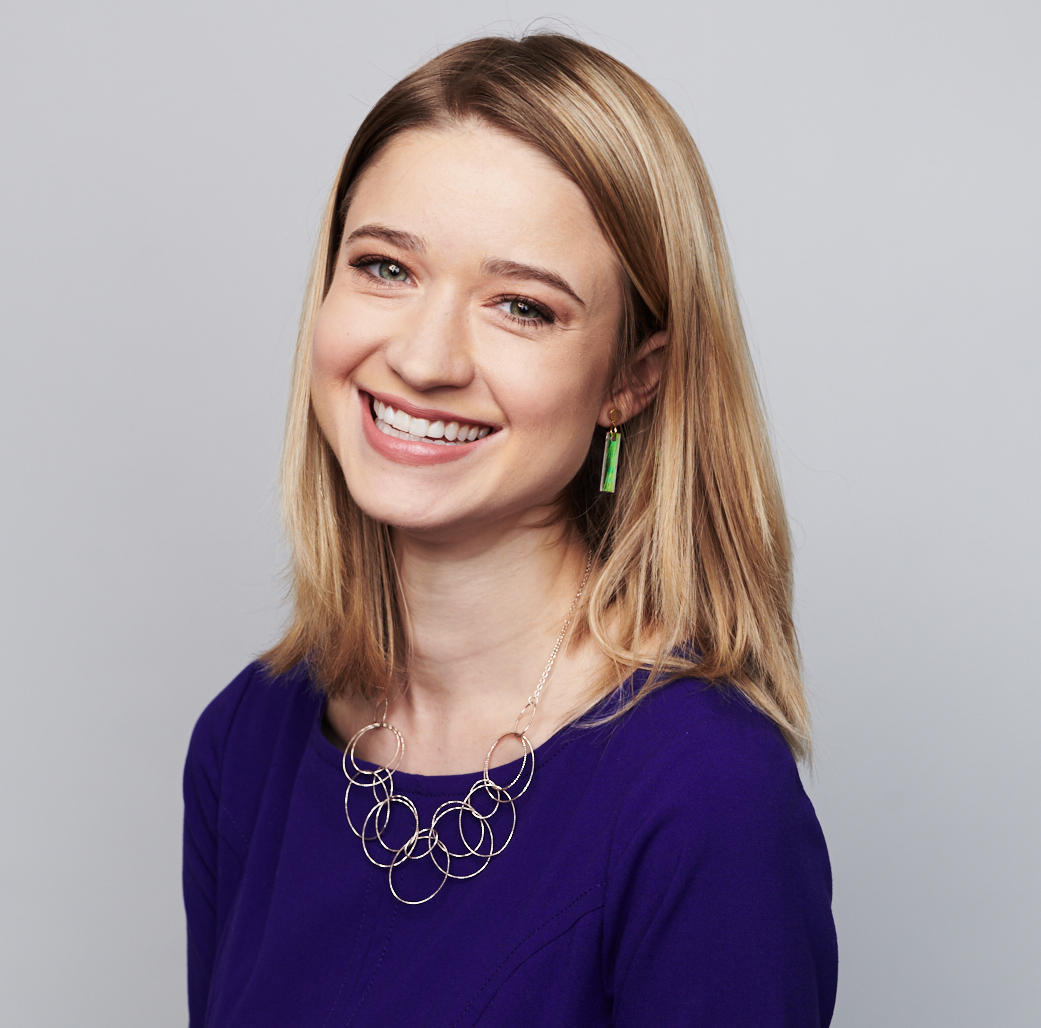
Dr. Elaine Sedenberg, an alumna of the UC Berkeley School of Information (I School) and a longtime contributor to the Center for Long-Term Cybersecurity, has been honored with the 2025 Mark Bingham Award for Excellence in Achievement by Young Alumni.
The Mark Bingham Award commends a young UC Berkeley alum who graduated within the last 10 years who has made a significant contribution to their community, country, or the world at large. The award pays tribute to Mark Bingham, Class of 1993, who died on September 11, 2001, defending the United States on United Airlines Flight 93.
Sedenberg graduated from the School of Information in 2019. Her dissertation, Information-intensive Innovation: The Changing Role of the Private Firm in the Research Ecosystem through the Study of Biosensed Data, examined the private sector’s evolving role in academic research. While at UC Berkeley, Elaine was student co-director of the Center for Society, Technology and Policy (CTSP).
Upon earning her PhD, Elaine joined Facebook (now Meta), where she has tackled important issues that affect billions of users worldwide, including shaping company policies related to privacy, governance, and product development. Her first job was on Meta’s Policy and Privacy team, where her role entailed bridging academic research and industry practice. She later served as Manager of Global Affairs and as a policy advisor to Nick Clegg, President of Global Affairs, guiding leadership on emerging issues like AI governance and data transparency. Most recently, she has taken on a role in Meta’s Wearables Business Group to help launch the next generation of computing platforms and AI devices.
“Elaine worked with us to bring together a group of interdisciplinary scholars and Meta employees to grapple with the question of how best to communicate sub-critical privacy risks, in a way that respected the rights and equities of individuals, supported the company’s core objectives, and made best and highest use of state-of-the-art research on risk communications,” said Steven Weber, founding faculty director of the Center for Long-Term Cybersecurity and a retired member of the I School faculty. “It was Elaine’s job to find points of common interest and look past the immediate conflicts to develop joint research initiatives and constructive discussions that would help bring these communities’ interests and objectives into alignment where that was possible.”
In addition to her work at Meta, Elaine served as a lecturer in the I School, teaching a course on Applied Behavioral Economics (2021-2023), and she currently is a lecturer at the Johns Hopkins School for Advanced International Studies. Her course on “Information Policy, Strategy, and Design in the Age of AI” prepares students to navigate the complexities of technology, ethics, and governance. Elaine also serves on CLTC’s External Advisory Committee, and she has helped advance the scaling of the UC Berkeley Cybersecurity Clinic and the establishment of a global consortium that addresses nonprofit and public-sector cyber resilience.
We caught up with Elaine to hear her reflections on how her experience at UC Berkeley has shaped her successful early career.
Let’s go back in time a bit. How did you end up going from the I School to working at Facebook?
I was completely surprised that I ended up working at Facebook. It wasn’t something I had sought out, but because of work I had been doing with the Center for Technology, Society, and Policy, I had met some people in industry who were looking for someone with a research background to bridge the gap between academia and practice. I took the interview thinking nothing would come of it, but to my surprise, they described a job that I thought would be a great fit, given my background.
What did you do at Facebook?
I initially started on the Privacy and Data Policy team. I led their academic partnerships and research insights. I was able to build on the network of academics I had developed to figure out a responsible approach for how industry could work with researchers and bring their insights into what Facebook was doing in practice. I had a pretty good pulse on what the trends were and what people were talking about at conferences, so I was able to use the subject-matter expertise I had gained in graduate school and apply it directly to industry.
I was on a team of mostly lawyers and people with Master’s of Public Policy degrees, so having a Ph.D. and coming from the School of Information, I was able to bring different skills and perspectives — and different bodies of literature — into our evidence base. It was an exciting time to work in privacy. One of my jobs was identifying ideas from academia, bringing them in, and connecting them with the right teams and the right people. I tried to make sure that we had the latest ideas coming out of academic papers and creating a pipeline into the company.
How did your role evolve from there?
When Nick Clegg was elevated to the position of President of Global Affairs, I was asked to join Nick’s team as a policy advisor. I then shifted my focus from being more external into being almost exclusively internally focused, and I managed high-priority leadership escalations. I wrote a lot of deep-dive memos on rapidly emerging topics and provided support for executives when things were changing very rapidly — including when AI emerged, which very quickly became a focus. I was making sure that we were getting up to speed and adapting to get ahead in rapidly evolving spaces.
Most recently, I transitioned into the Wearables Business Group. I’m supporting a team that’s looking at the future of wearable computing, including the Ray-Ban Meta platform, which takes me back to my roots at the School of Information, when I both took classes on and was a graduate student instructor for information economics. I’ll be thinking about privacy issues, usable tech, and making the technology more accessible to people. I’m really excited because it brings me back to past work I’ve done with sensors and different kinds of integrated technology beyond online platforms. We’re thinking through the use cases and the benefits of sensory augmentation and developing computing platforms, which is a completely new area for me.
“Similar to the mission of CLTC, my job is to look ahead and anticipate future problems and do my best to make sure that they incorporate external voices and evidence into practice so that it shapes the future in a way that is better for people and society.“
How would you summarize the impact you’ve had at Meta?
I’ve been very intentional about making sure that outside voices are heard and featured within the company. If I’m doing my job, a lot of the problems will have gotten solved before they ever manifest. Similar to the mission of CLTC, my job is to look ahead and anticipate future problems and do my best to make sure that they incorporate external voices and evidence into practice so that it shapes the future in a way that is better for people and society.
How did you get into teaching?
During the pandemic, I was able to come back to Berkeley and start teaching online. I taught two courses, and based on that experience, I now teach at Johns Hopkins School for Advanced International Studies.
I’ve been doing a lot of I School-type teaching, which is not quite what they’re used to, but I think it’s been a pleasant surprise and they’ve done really well. The students were used to writing long-form papers and delivering very formal presentations, but leaning on the course structure from Steve Weber and other I School professors, I have them doing rapid-fire pitches with new ideas every week. They’re encouraged to go out on a limb and try something new, and it’s okay if it doesn’t work as long as they try to connect the themes and theories from class.
Having that rapid-fire creativity and application of concepts to real-world situations is very much in the style of what they would do either in industry or policy, where the memos have to be crisp, concise, and to the point. It’s about getting to your point and making your argument, which is absolutely essential when you work in industry or any policy context.
What surprised you most when you made the transition from academia into industry?
My biggest surprise has been how much I like working in industry. I think you can affect a lot of change by working inside companies, and I have been surprised at how much I like the pace of work. It can be really intense, but you get a lot done. It can be quite the opposite of academia, where research often takes a very long time to manifest.
I also like that I get to work on several projects at once, and work on things that are very tangible and watch them go from start to finish. I find that very satisfying. My colleagues are also great people and they come from a number of different backgrounds, and I really appreciate that. I get to bring an academic perspective, but I get to learn from someone who has a business background or has a different area of specialty. That really challenges me, but it also makes me better at understanding my area of expertise.
If you were to offer advice to a student at the I School today, what would you say?
Graduate school is a time when you get to go much deeper on a passion area of yours — to develop your interest and deepen your expertise. But it’s also a time that you get to branch out and try classes or go to talks that you may only be passingly interested in. You never know when something’s going to spark or when you find something interesting, or what might pop up later in your career.
So what I would tell students at the I School is that you’re in a very special place. The Berkeley School of Information uniquely trains people in an interdisciplinary way to tackle problems that are very real and important to society. You also have the opportunity to step outside your comfort zone and start to learn from someone in an area that you might be curious about. Being able to push yourself just a little bit is going to benefit your career, especially if you’re planning to work as a practitioner later on.
How did you feel when you received the Mark Bingham Award?
It is an absolute honor to be recognized with this award. I was reflecting a lot on what it meant to receive an award that was named after a 9/11 hero. They are big shoes to fill. Mark Bingham was someone who saved a lot of lives that day.
What I was struck with is, when you graduate from Berkeley, you never really know when you’re going to need to rise up, whether it’s a small action or a big one. And you’re going to need to use all of your training and all of your principles that you developed while being a student to do what you think is right and to serve other people. This award for me is a reminder that you never know what any day’s going to bring, and that’s a mindset that you need to carry with you after you graduate.
Part of what makes Berkeley so special is that, as a university, they really train students to take those daily decisions to heart and to do the right thing for what is best for other people. The lesson I’m taking from this is that you’re never really done. Graduating from Berkeley is a lifetime of trying to make those choices. And I’m just really flattered and honored to have received this at this point in my career. You never know when you’re going to get called upon.

